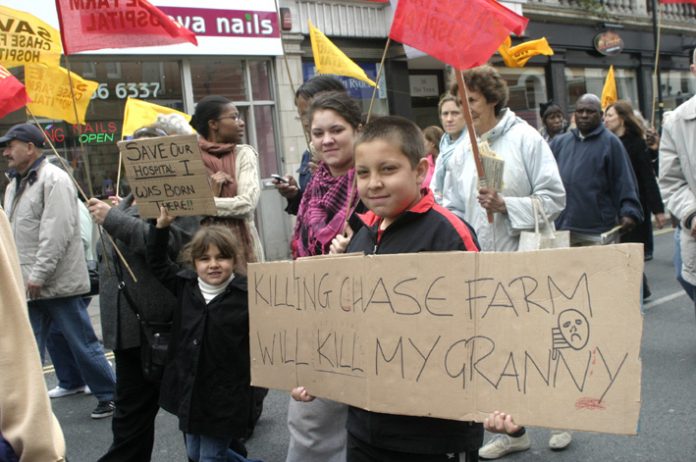
Doctors at a clinic that failed to spot that Baby Peter – ‘Baby P’ – had a broken back two days before he died were dealing with an ‘excessive workload’, an NHS London inquiry has found.
Seventeen-month-old Baby Peter died from abuse in 2007, and was seen at St Ann’s Hospital in Haringey, north London.
Senior consultant Dr Kim Holt said that ‘overstretched’ staff had been prompted to write an open letter outlining problems in 2006 when £400,000 of proposed cuts were unveiled.
‘We did not feel that the letter was acted on in any meaningful way. In the meantime a tragedy happened which we felt was foreseeable,’ she said.
Dr Holt said she felt that the situation ‘was becoming increasingly dangerous’ at the clinic.
The inquiry’s report described Dr Holt as a very articulate, intelligent doctor who was very committed to her work with children.
She was one of four consultants who wrote a letter detailing problems at the clinic a year before Baby Peter’s death.
They warned that the clinic run by Haringey Primary Care Trust, and manned by Great Ormond Street Hospital doctors, was understaffed.
There had once been four doctors at the clinic, but two posts were cut before Baby Peter’s death.
Since the case, the number of posts has risen to nine.
The NHS London inquiry found ‘no evidence’ that Dr Holt’s main concern about consultants’ workload was ‘adequately addressed’ and said that ‘delays in seeing children must have the potential to affect patient safety’.
The inquiry said that communication between doctors and senior administrators needed to be managed ‘more effectively in the interests of patient care’.
The inquiry said the workload of consultants at the children’s clinic between 2006 and May 2008 had been ‘excessive’ and said the consequences of cutting a consultant post ‘were not adequately considered’ by management.
But it said ‘genuine attempts’ had been made to improve the situation after Dr Holt’s letter in 2006.
The inquiry also noted complaints of a ‘very hostile environment’ between staff and management.
After the publication of the report, Dr Holt said: ‘Our concerns throughout were for the quality of care for the children being seen at the clinic.
‘We followed internal trust channels, only going outside when they had been exhausted.
‘I hope now that everyone will be able to learn from this report. . . I also hope that in future it will be far easier for NHS staff, in Haringey or anywhere, to speak out in the interests of their patients, particularly those who have no voice of their own.’
The British Medical Association has been seeking the reinstatement of Dr Holt who, after the letter was sent, was placed on special leave relating to work-related stress.
The NHS London report recommended that she return to work.
The inquiry report states that Dr Holt ‘is entitled to feel aggrieved’ when, having raised patient safety and other concerns, she later found herself in the position where she was told ‘she cannot return to her job’.
It questions whether she was adequately protected in accordance with Great Ormond Street’s whistle-blowing policy and recommends further mediation to ensure she can return to work as quickly as possible.
Dr Mark Porter, chairman of the BMA’s Consultants Committee, said: ‘This has been a sad and extremely difficult case for everyone involved, and one that shows how hard it can be for doctors to raise their concerns.
‘The NHS and all its constituent organisations must get better at recognising the invaluable service to patients performed by those who raise well-founded concerns about safety and quality.’